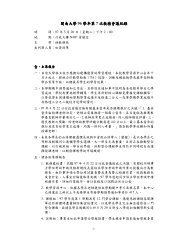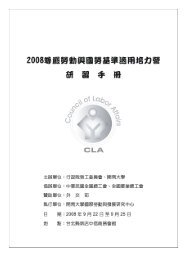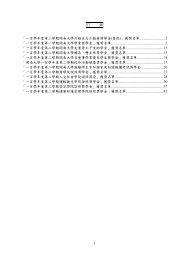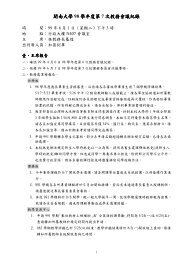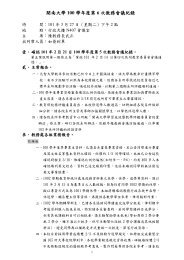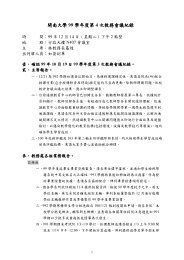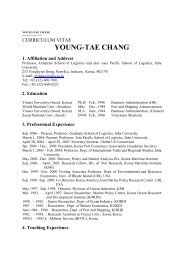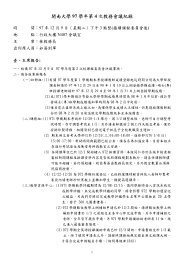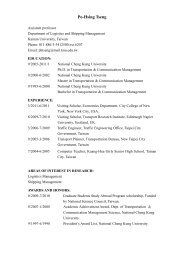活動手冊 - 開南大學
活動手冊 - 開南大學
活動手冊 - 開南大學
You also want an ePaper? Increase the reach of your titles
YUMPU automatically turns print PDFs into web optimized ePapers that Google loves.
emoved native speakers from the equation, with more and more trans-national<br />
communication using English occurring between those who speak it as a second<br />
language. This has given rise to the concept of an international English, independent<br />
and outside the control of any one national or ethnic grouping.<br />
In a world under transformation by globalization, English will increasingly become<br />
used as a medium of communication. In a language under transformation by<br />
globalization, the nature of English will become increasingly defined through a dynamic<br />
tension between an ever proliferating variety of localized forms, and the interaction of<br />
these localized forms in the transnational arena. Normative standards, while certainly<br />
still existing and highly relevant in some contexts, will become increasingly difficult to<br />
impose across national boundaries, and the ability to utilize English to communicate<br />
with others who adhere to different localized standards will become increasingly<br />
valuable.<br />
This is the world in which both teachers and students in Taiwan exist and the<br />
reality to which we must adapt ourselves. Learners will potentially have to adapt to<br />
different localized standards of English dependent of their future career and general life<br />
paths. They will also have to interact with speakers of different forms of English in a<br />
transnational environment in which no single standard exists, and learn an approach to<br />
language and communication which will allow them to compensate for this. As teachers<br />
we must seek to adapt our educational styles to the challenges of this new global/local<br />
English.<br />
-20-



